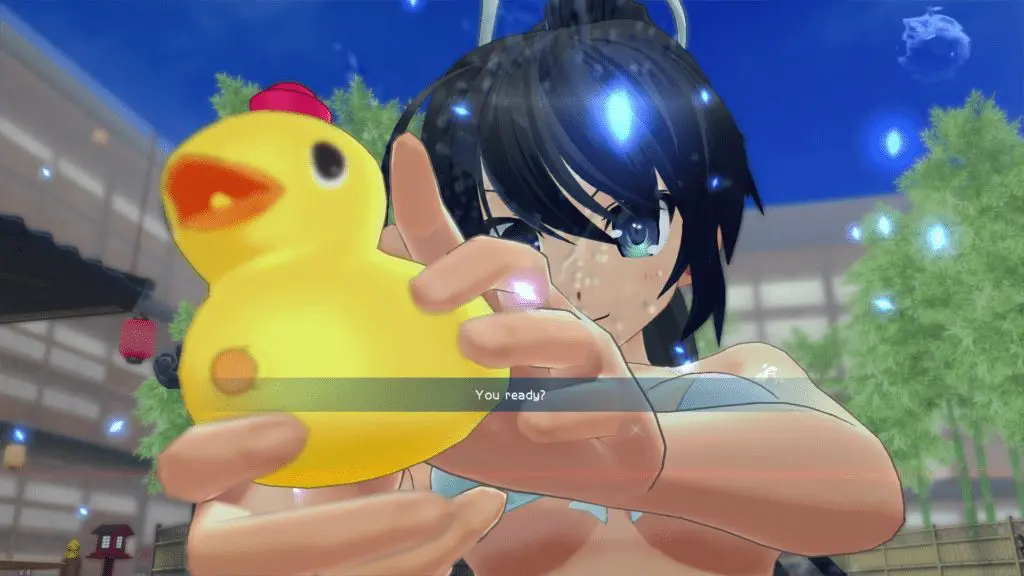SENRAN KAGURA Peach Beach Splash is the fifth SK game I’ve worked on as a localizer, the sixth to hit North American shores, and marks the fifth anniversary of the series as a whole. As the guy whose job it is to bring out the characters’ voices, working on a long-running series like this one makes me think about how to keep those voices fresh and interesting from game to game.
By now, the main characters’ quirks and personalities are all well established. Katsuragi likes boobs, Ryōna likes pain, Asuka and Homura like fighting each other, and so on. Knowing the girls’ mannerisms, likes, and dislikes gives us a pretty good idea of how they’ll respond in most situations, and if we get to know them too well, they run the risk of becoming predictable.
Partly for that reason, the series likes to shake up the formula now and again. No two games in the franchise play quite the same way, and Peach Beach Splash is the biggest departure from the norm, gameplay-wise, since Bon Appétit. The game emphasizes projectiles (specifically water projectiles) over melee attacks, takes Secret Ninja Arts off the table (replacing them with customizable cards), and gives the girls more maneuverability, thanks to their new hydro-jetpacks, than any past game in the series. Players of the already-released Japanese version have compared the game to Armored Core, albeit a much more lighthearted Armored Core.

Those changes to the gameplay also carry over into the story. The girls, after returning home from the serious training, ominous warnings, and emotional hardships of Estival Versus, find themselves reeled into what they think is a pointless (and questionably raunchy) water gun tournament. Each character reacts to that in a different way, and that’s one way to keep their personalities interesting — by showing how they respond to unexpected and unusual circumstances.
Those reactions also push the girls’ relationships in unexpected ways, and that’s another way to keep things fresh — the girls’ core personalities might not change much, but their relationships with others can. Over the course of the series, we’ve seen Hibari grow more independent from Yagyū, Hikage more comfortable around her squadmates, Yumi less rigid with both her team and her ideology, and Murasaki just a bit less timid about speaking up to her sister and her team leader. In Peach Beach Splash, that growth sometimes leads to conflict, which develops the characters’ relationships even further.

One of the themes in Peach Beach Splash is about how each of the girls has her own independent life in addition to being a member of the team. With graduation approaching (and approaching, and approaching) for several of the girls, major life choices are bearing down on them, some of which could keep them away from everyone they’ve come to love. Other prominent subplots in Peach Beach Splash illustrate how hard it can be to manage a team full of strong-willed, divergent personalities, as Miyabi struggles to keep the peace between two sets of bickering siblings.
There is a more central conflict to the story of Peach Beach Splash, and the true purpose of the tournament does come to light eventually, but the general tone of the game is much lighter than Burst, Deep Crimson, or even Estival Versus. That said, the game shapes itself up to be the girls’ last lighthearted adventure (spinoffs aside) before everything hits the fan in the next canonical volume, and there’s no telling how each girl will deal with what’s coming.
Until then, we hope everyone enjoys a wet, wild romp through a summer playground with the girls of SENRAN KAGURA.


